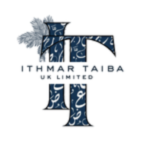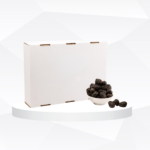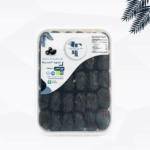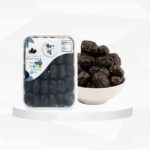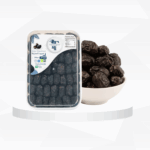No products in the cart.
“Pure, Natural, and Delicious — Dates You Can Trust.”
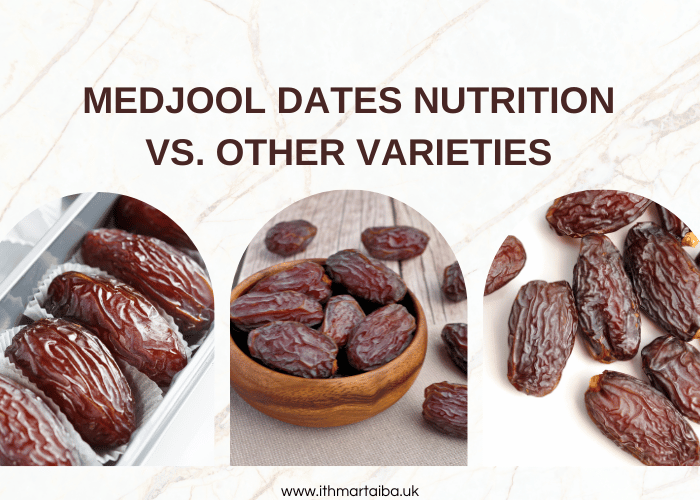
Medjool Dates Nutrition vs. Other Varieties – The Ultimate Sweet Showdown
Dates have been celebrated for thousands of years as nature’s candy — sweet, nutrient-packed, and incredibly versatile. Whether you savor them as a quick snack, blend them into smoothies, stuff them with nuts, or use them in decadent desserts, dates offer both indulgence and health in one bite.But here’s the big question: When it comes to Medjool Dates Nutrition vs. Other Varieties , which one really reigns supreme?
Are Medjool dates truly the “king of dates,” or do other varieties like Deglet Noor, Ajwa, Sukkari, and Safawi deserve a seat at the royal table?
Let’s dig deep into flavor, texture, nutritional value, and culinary uses — so you can pick the perfect date for your taste buds and health goals.
Medjool Dates Nutrition vs. Other Varieties – Why Medjool is Called the King
Medjool dates have earned their royal reputation for a reason. Larger, softer, and juicier than most varieties, they have a rich caramel-like flavor with hints of honey and cinnamon. Each bite offers a luxurious, melt-in-your-mouth texture.
Nutritional Snapshot (per 2 Medjool dates ~48g):
- Calories: ~133
- Carbohydrates: 36g
- Fiber: 3g
- Potassium: 334mg (7% DV)
- Magnesium: 26mg (6% DV)
- Copper: 19% DV
- Vitamin B6: 7% DV
- Calcium & Iron: Small but beneficial amounts
In the Medjool Dates Nutrition vs. Other Varieties debate, Medjool usually takes the lead in potassium, making them excellent for heart health, muscle recovery, and hydration. Their higher natural sugar content makes them a quick, healthy energy source — a favorite among athletes and busy professionals.
How Other Varieties Compete in the Medjool Dates Nutrition vs. Other Varieties Debate
When you compare Medjool Dates Nutrition vs. Other Varieties, each has unique strengths:
- Deglet Noor (“Queen of Dates”) – Smaller, firmer, and less sweet than Medjool. Mild, nutty flavor and lower sugar (~110 calories per 48g). Great for baking and savory dishes.
- Ajwa Dates – Deep cultural and spiritual value in Saudi Arabia, especially in Al-Madinah. Dark, soft, with earthy undertones. Known for high antioxidant content and traditional health benefits.
- Sukkari Dates – Golden, sugary-sweet, and soft — perfect for snacking.
- Safawi Dates – Dark, soft, and rich in minerals like magnesium and iron.
- Barhi Dates – Buttery and butterscotch-like, often eaten fresh.
- Khadrawy Dates – Moist and flavorful, similar to Medjool but with a unique taste.
Bottom line: In Medjool Dates Nutrition vs. Other Varieties, the “winner” depends on whether you prioritize sweetness, texture, calorie count, or antioxidant value.
Fiber – A Digestive Advantage in Medjool Dates Nutrition vs. Other Varieties
Fiber is one of the main talking points in the Medjool Dates Nutrition vs. Other Varieties discussion.
- Medjool Dates: ~3g of fiber per serving, helping digestion, blood sugar stability, and satiety.
- Deglet Noor: ~2.5g of fiber per serving — slightly less but still beneficial.
- Ajwa Dates: Comparable fiber, plus higher antioxidant levels.
All varieties promote gut health, but Medjool’s slightly higher fiber content can give them an edge for digestive wellness.
Minerals & Antioxidants – Who Has the Nutritional Crown?
When it comes to Medjool Dates Nutrition vs. Other Varieties, minerals and antioxidants play a big role:
- Medjool: Best potassium content for heart and muscle health.
- Ajwa: Exceptional antioxidants that may protect cells and support immunity.
- Safawi: Rich in iron and magnesium — great for energy and bone health.
Every type brings its own nutritional “superpower,” making variety in your diet a smart choice.
Taste, Texture, and Culinary Uses
Flavor is a deciding factor in Medjool Dates Nutrition vs. Other Varieties:
- Medjool: Sweet, caramel-like, perfect for smoothies, desserts, or stuffing with nuts.
- Deglet Noor: Firmer, less sweet — ideal for baking, savory dishes, and energy bars.
- Ajwa: Best enjoyed as-is for their health benefits and tradition.
- Sukkari & Barhi: Ideal for fresh, melt-in-the-mouth snacking.
Shelf life also differs — Medjool’s moisture means they need refrigeration, while Deglet Noor can last months at room temperature.
Medjool vs. Deglet Noor – Nutritional Face-Off
Nutrient (per 48g)
Medjool Dates
Deglet Noor Dates
Calories
~133
~110
Carbohydrates
36g
30g
Fiber
3.0g
2.5g
Sugar
32g
27g
Potassium (%DV)
7%
6%
Calcium
Higher
Lower
Medjool wins on minerals; Deglet Noor wins on lower sugar and calories.
Health Benefits Across All Varieties
Regardless of where you stand in the Medjool Dates Nutrition vs. Other Varieties debate, all dates share incredible health perks:
- Boost digestive health with fiber
- Combat inflammation with antioxidants
- Support heart and muscle function with potassium and magnesium
- Offer sustained energy from natural sugars
The main differences lie in sweetness, calorie count, and specific nutrient emphasis.
Price, Storage & Market Appeal
Price and storage play a role in your choice:
- Medjool: Premium pricing due to size, texture, and delicate handling needs.
- Deglet Noor: More affordable, widely available, great for bulk purchases.
- Ajwa: High-value, especially during religious seasons.
Storage-wise, Medjool needs refrigeration for freshness, while semi-dry dates like Deglet Noor can sit happily in your pantry.
Final Verdict – Medjool Dates Nutrition vs. Other Varieties
After exploring the facts, there’s no single “winner” in Medjool Dates Nutrition vs. Other Varieties. It depends on your needs:
- Choose Medjool for indulgent sweetness, high potassium, and soft texture.
- Pick Deglet Noor for lower sugar, fewer calories, and long shelf life.
- Go for Ajwa if you want antioxidants and cultural heritage.
- Try Sukkari, Safawi, Barhi, Khadrawy for unique flavors and experiences.
No matter the variety, you’re getting a wholesome, naturally sweet superfood.
FAQs on Medjool Dates Nutrition vs. Other Varieties
Q1: Are Medjool dates healthier than other dates?
Medjool dates are higher in potassium and slightly higher in fiber, but other varieties may have more antioxidants or fewer calories.Q2: Which date variety is best for weight loss?
Deglet Noor and Ajwa are lower in sugar and calories, making them more weight-friendly.Q3: Can diabetics eat Medjool dates?
In moderation, yes. Medjool dates have natural sugars but also fiber, which slows sugar absorption.Q4: Which dates have the longest shelf life?
Semi-dry varieties like Deglet Noor and Khadrawy last longer than soft, moist Medjool dates.
Taste the Royalty of Dates Today!
Whether you crave the caramel richness of Medjool or the nutty charm of Deglet Noor, every variety is a delicious investment in your health. Explore our premium collection of fresh, handpicked dates — straight from the farm to your table.
Disclaimer: The data for this article is curated from various sources on the internet. We do not take responsibility for the accuracy of this data.
Ready to experience the finest Saudi dates? Start your journey today by exploring these exceptional sources and discover the richness of Saudi Arabia’s most cherished fruit. Treat yourself or share the joy with loved ones by gifting the best quality dates the Kingdom has to offer!
Visit www.ithmartaiba.uk to explore our premium range of dates and take the first step toward a healthier lifestyle
